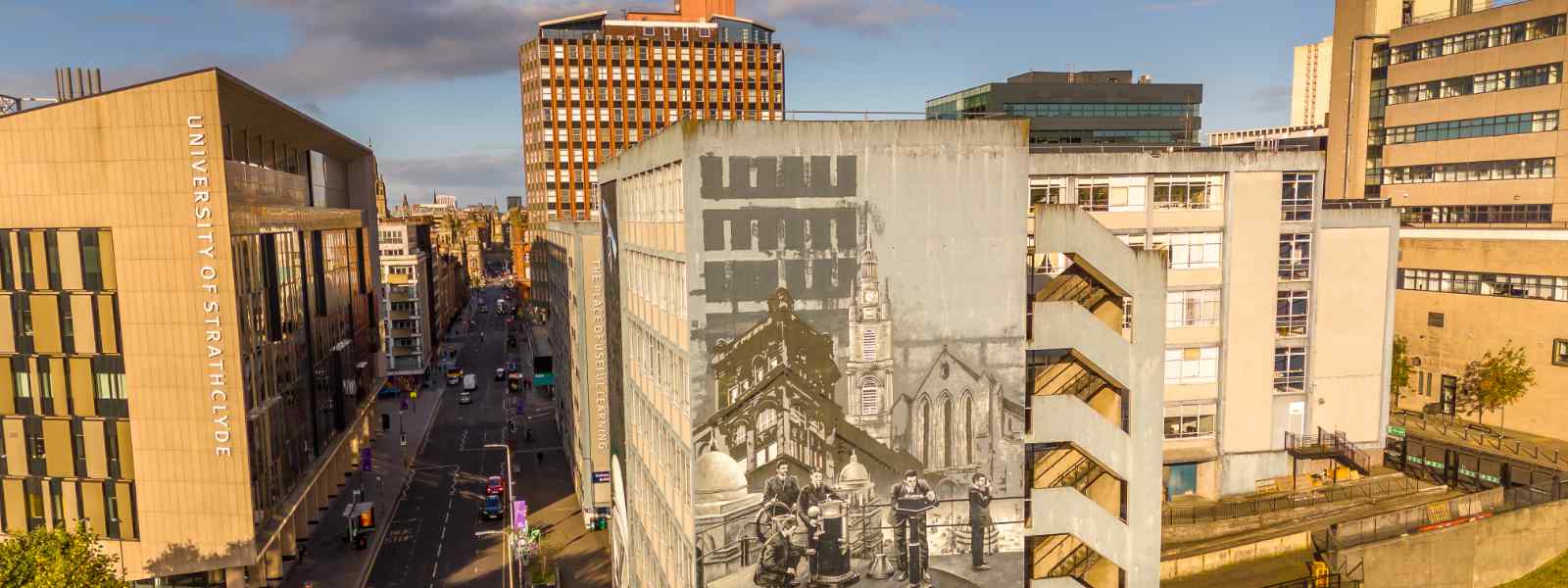
A project that is empowering coastal communities in ocean governance, and another developing zero carbon neighbourhoods, have been shortlisted for the 2024 Scottish Knowledge Exchange Awards.
The Strathclyde-led One Ocean Hub has been nominated in the Knowledge Exchange Heroes (Team) category and a Knowledge Transfer Partnership (KTP) between the University and Anderson Bell & Christie Architects is in contention for the Making an Environmental Difference award.
The awards, organised by business-academic matchmaking organisation Interface, celebrate successful partnerships at the cutting-edge of research and development between businesses, universities, colleges and research institutes, to change lives in Scotland and beyond.
Strathclyde has a strong track record in the awards, with wins in four of the past six years.
The winners will be announced at a ceremony at The Royal Conservatoire of Scotland in Glasgow on 14 March.
The One Ocean Hub is an international programme of research for sustainable development with 18 partner organisations, including various UN agencies, and 21 research partners across the world.
The Hub’s Knowledge Exchange Awards shortlisting is for its team of Early Career Researchers, a multidisciplinary team working on groundbreaking and innovative approaches towards the goal of inclusive and equitable ocean governance, whereby people and the environment can flourish. The team uses expertise in fields including environmental and human rights law, marine biology social sciences, environmental humanities, arts and history.
One Ocean Hub Director Professor Elisa Morgera, of Strathclyde Law School, said: “It is a great honour and pleasure to hear that the Hub's ECRs were nominated for the Scottish KE Heroes award. Our ECRs are a diverse team coming from South Africa, Namibia, Ghana, the Caribbean, Scotland and further across the UK and working in a range of disciplines from deep sea research to marine social sciences, art, and humanities.
“I could not imagine better champions for Hub's vision and mission of fair and inclusive decision-making for a healthy ocean whereby people and planet flourish. They combine passion and creativity with academic rigour and in their research, they use innovative participatory methods that often transcend disciplines. They collaborate with the local coastal communities, co-creating research and artwork with the people who rely on the ocean the most. We could not be more proud of them.”
The KTP with Anderson Bell & Christie is developing a Zero Carbon Neighbourhood Toolkit which provides a data-driven, evidence-based method for designing individual buildings and entire neighbourhoods.
The toolkit supports local authorities, housing associations and developers in site appraisals, selecting the right location with regard to net zero targets, improving biodiversity, community health and wellbeing by place-based carbon reduction and sequestration solutions.
Professor Tim Sharpe, Head of Strathclyde’s Department of Architecture and the University’s lead in the KTP, said: “The need to consider new developments in a holistic way to achieve sustainability is critical and this project is enabling Anderson Bell Christie to develop and embed this expertise, to improve their processes and to better support and inform their clients.”
Applications for the awards were invited from all Scottish universities, research institutes and colleges, as well as businesses and organisations, demonstrating research and development and innovation-led partnerships which have had a positive impact on the economy, society, and the environment.
The finalists have been chosen by a panel of judges seeking collaborations which show innovation, societal or economic impact and transformation, as well as recognising the people contributing to business-academic partnerships.